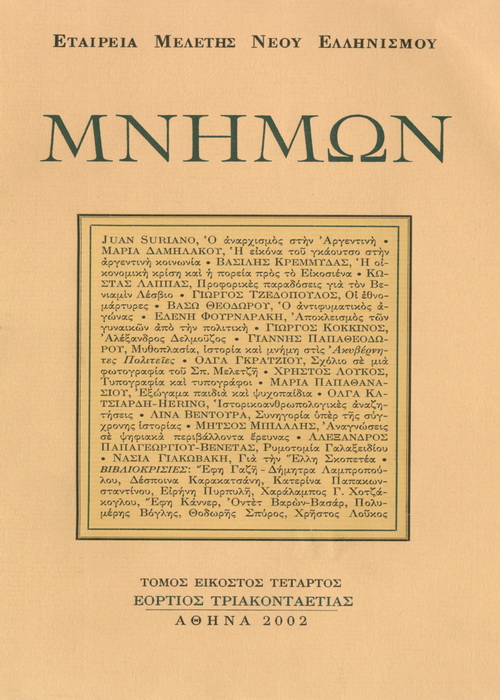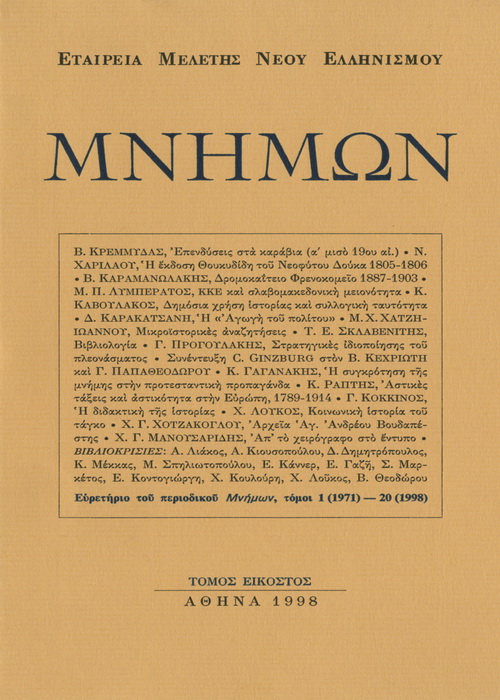Ο ΣΚΛΗΡΟΣ ΑΠΡΙΛΗΣ ΤΟΥ '44. ΜΥΘΟΠΛΑΣΙΑ, ΙΣΤΟΡΙΑ ΚΑΙ ΜΝΗΜΗ ΣΤΙΣ ΑΚΥΒΕΡΝΗΤΕΣ ΠΟΛΙΤΕΙΕΣ TOΥ ΣΤΡΑΤΗ ΤΣΙΡΚΑ
Abstract
Yiannis Papatheodorou, a The cruel April of 1944»: Fiction, History and Memory in Straus Tsirkas's Drifting Cities
Stratis Tsirkas, a distinguished Greek diaspora novelist in Egypt, published his important and controversial trilogy {The Club, Ariagne, The Bat), in the early '60s. The novel is situated in three colonial Mediterranean cities —Jerusalem, Cairo and Alexandria— drifting towards chaos in a war-torn Middle East, during 1942-1944. As far as the plot is concerned, the trilogy is inscribed to the wider context of postwar European literary «master-narratives» elaborating representations of war, Nazism and resistance, and also opening an agenda to the traumatic phenomena of a discontinuous modernity: violence, social repression, exclusion of the Other. This article discusses the politics of history and memory in Stratis Tsirkas's trilogy Drifting Cities in order to show how he problematizes the tropes of historical representation in a dialogical perspective, by focalizing to the Greek military left underground «movement of April 1944». His historical point of view, which clearly can be identified as the «return of the repressed», is related to the questions of an alternative narration about the past, enriched within a critical and deliberating interpretation of the left collective memory.
Article Details
- How to Cite
-
ΠΑΠΑΘΕΟΔΩΡΟΥ Γ. (2002). Ο ΣΚΛΗΡΟΣ ΑΠΡΙΛΗΣ ΤΟΥ ’44. ΜΥΘΟΠΛΑΣΙΑ, ΙΣΤΟΡΙΑ ΚΑΙ ΜΝΗΜΗ ΣΤΙΣ ΑΚΥΒΕΡΝΗΤΕΣ ΠΟΛΙΤΕΙΕΣ TOΥ ΣΤΡΑΤΗ ΤΣΙΡΚΑ. Mnimon, 24(2), 269–296. https://doi.org/10.12681/mnimon.741
- Issue
- Vol. 24 (2002)
- Section
- ARTICLES




